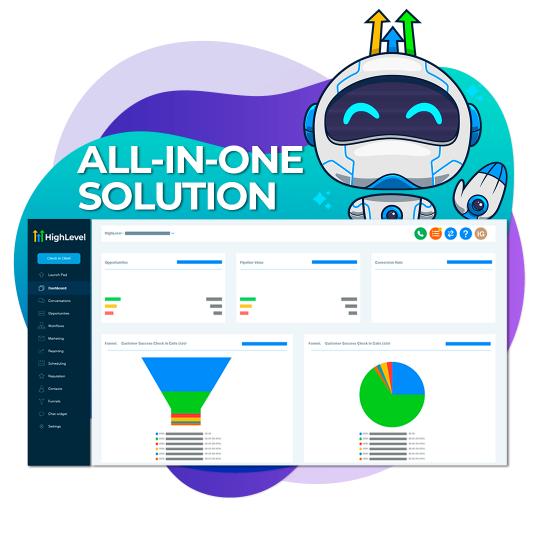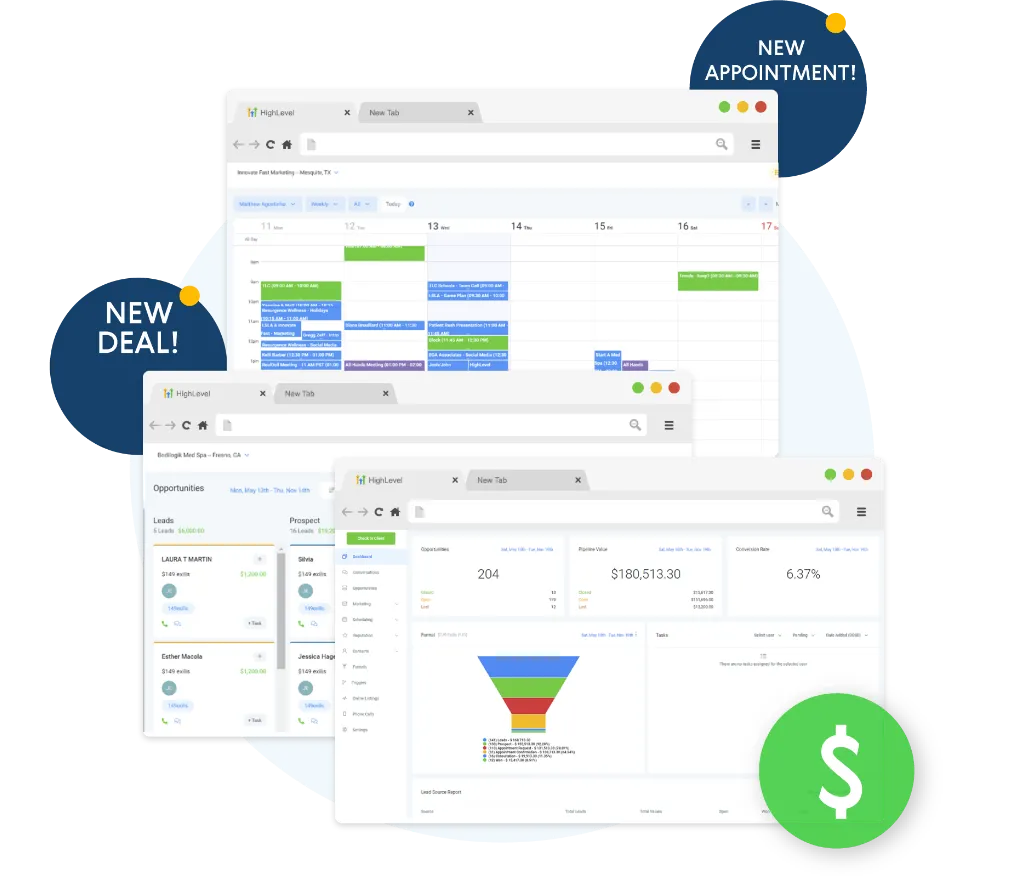Picking the right CRM helps your business grow better. First, think about what you want to do. Do you want happier customers? More sales? Look at what slows you down now and list what you need most. Things like keeping track of customers and seeing sales on your phone are key.
Money matters too. CRMs can cost from $10 to $300 for each person who uses it. You might need to pay more for storage and learning how to use it. Make sure your CRM keeps your data safe and stays up to date.
Look for a CRM maker people trust. Check if it works with your other tools. Pick one that can grow as your business gets bigger. This way, your CRM will help you for a long time.
Feeling overwhelmed by missed leads and disorganized workflows?
Discover the award-winning platform that automates follow-ups, tracks every lead, and keeps your business running smoothly—all in one place. Thousands of businesses are already transforming their sales and marketing with this trusted solution. Don’t miss out—start your 14-day free trial today and click now to uncover exclusive, limited-time special offers!
Defining Your Business CRM Goals

We know you want to make your business better with CRM. Let's start with good goals.
First, pick goals you can track. Maybe you want to keep more customers happy. Or you want to help them faster when they need you.
Make goals that your team can reach. Think about what your business needs most. Give each goal a clear end date.
Your goals should make life better for your customers. Pick things you can count, like:
- How many customers stay with you
- How fast you help people
- How happy your customers are
Look at these numbers often to see if you're doing well. Fix things that aren't working. Keep doing what works.
Assessing Current Business Pain Points
We need to find what's not working in your business right now.
Look at what's giving you trouble each day. Are customers leaving? Is it hard to find files? Do you waste time looking for things?
Talk to your customers. Read what they say online. Look at your help desk tickets. This shows you what needs to get better.
Watch how your team works. Do they spend too much time looking for emails? Are they doing the same tasks over and over? Write down all these problems.
Ask everyone in your team what bugs them most. Make a list.
When you know what's wrong, you can pick the right tools to fix it.
This way, you'll know exactly what kind of CRM system will help your business grow stronger.
Ready to simplify your business operations?
Streamline your workflows and boost productivity with a CRM designed to save you time and effort. From tracking leads to automating follow-ups, this platform does it all. Discover what’s possible—learn more about how it works and see why so many businesses rely on it every day.
Key Features Worth Looking For
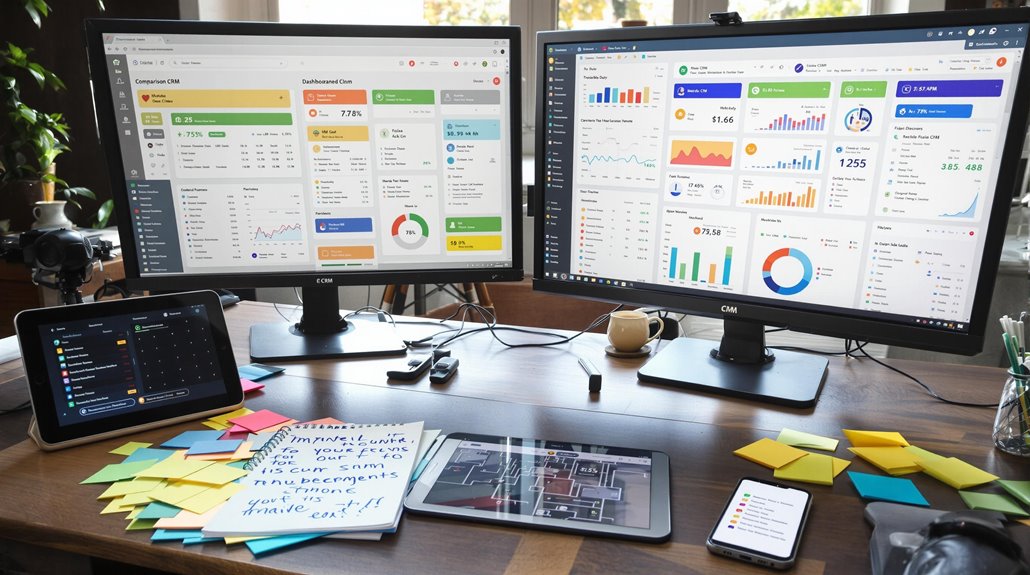
Let's talk about picking the right CRM tools for your business. Once you know what problems you need to fix, you can find tools that help you do just that.
Start with the basics that will help you right now. Make sure the system can grow with your business too.
| Must-Have Tools | Extra Tools | Special Tools |
|---|---|---|
| Contact Lists | AI Help | Field Work Tools |
| Sales Tracking | Custom Reports | Ad Tracking |
| Help Desk | Phone App | Smart Forecasts |
| Lead Tracking | Links to Other Apps | All-in-One Support |
Pick a CRM that makes it easy to keep track of people and sales. It should do some work for you on its own. You need to see how well things are working too.
Make sure you can use it on your phone. If your team works from home, you need strong safety steps to protect your data. Your CRM should work well with other tools you already use.
Still struggling to keep your business organized?
Take the guesswork out of managing leads and follow-ups with a platform trusted by thousands of businesses. Say goodbye to missed opportunities and hello to a seamless sales process. Act now—try it free for 14 days and discover how easy it is to stay on top of your workflow. Don’t wait—exclusive offers won’t last long!
Essential Integration Requirements
Let's make your CRM work better for you and your team. Think about what you want it to do – like keeping your customers happy or seeing all your data in one place.
Pick a CRM that can grow as your business grows. Make sure it fits how your team works and keeps your data safe. Set clear rules about how to put in data so everyone does it the same way.
Help your team learn the new system well. Show them how to use it step by step. Ask them what works and what doesn't.
Keep checking that the system runs well and fix any problems fast.
Scalability and Growth Planning

Let's talk about helping your CRM grow with your business. You need a system that works well now and later, and stays easy to use.
Think about these simple things when picking a CRM:
| What You Need | What to Look For | Why You Want It |
|---|---|---|
| More Users | Easy to add people | Your team can grow |
| More Space | Online storage | Save all customer info |
| Less Work | Tasks that run by themselves | Save time as you grow |
| Better Reports | Easy to read data | Make smarter choices |
Pick a CRM that can do many jobs but also lets you make changes. You want tools that can:
- Score your leads
- Track your sales
- Do tasks on its own
Make sure to pick a CRM maker that keeps making their product better. This way, your CRM will work well for years to come.
Struggling to keep up with your growing business?
Simplify your processes and stay ahead with a CRM that adapts to your needs. Manage leads, automate tasks, and focus on what matters most—growing your business. Take the first step—explore the features today and see how it can transform the way you work.
Budget and Pricing Considerations
Let's talk about money for your CRM system.
You can spend as little as $10 or as much as $300 for each person using it each month. Think of it like a phone bill – you pay based on who needs to use it.
Before you buy:
- Check what your team can spend
- See if free plans work for your small team
- Look out for extra costs like storage and training
- Pick a plan that fits how you want to pay
Some plans charge by user. Others have different levels with more tools as you pay more.
Think about what your team needs now and what you'll need as you grow.
Don't forget about things that could save you money over time:
- Ways to keep your data safe
- Tools to make the system work your way
- Features that do tasks for you
Remember: cheap isn't always better, but you don't need to spend a lot to get what you need.
Customization Vs Out-Of-Box Solutions
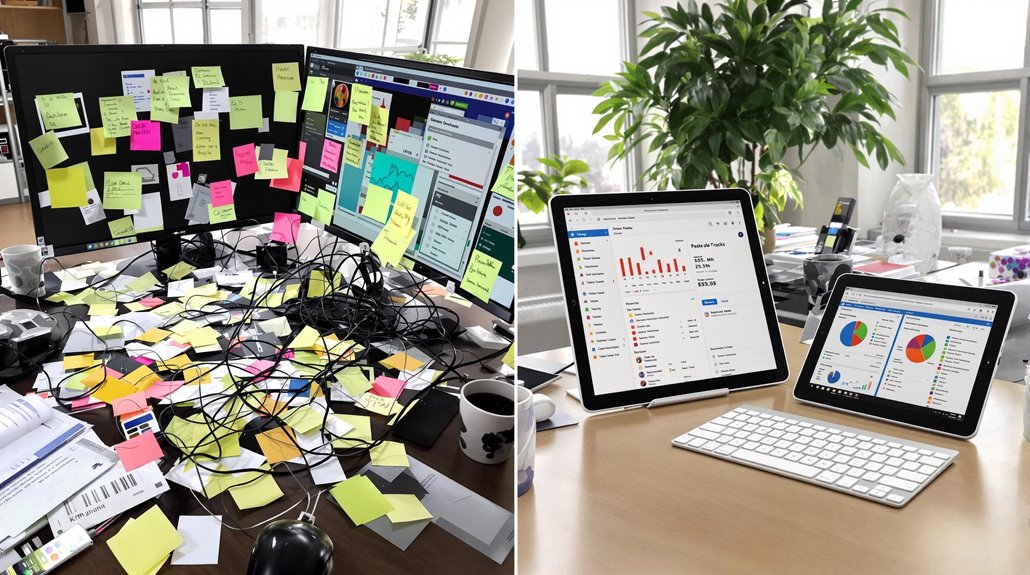
Picking your CRM is like choosing between a custom-made suit and one from the store. You can build one that fits just right, or grab one that's ready to wear.
| What Matters | Built Just for You | Ready to Use |
|---|---|---|
| How It Fits | Works exactly your way | You adjust to it |
| How Fast You Get It | Takes longer to make | Use it right away |
| Money Needed | Costs more to start | Costs less to begin |
| Keeping It Running | You fix and update it | The maker updates it |
| Room to Grow | You control changes | Comes with growth tools |
Think about how your team works now and what you'll need as you grow. A custom CRM lets you do things your way, but needs more time and money. A ready-made CRM works fast and costs less, but might have extra parts you don't need. Pick what works best for your team's skills and where you want your business to go.
Data Security and Compliance
Keeping your data safe is a must when picking a CRM tool. Think of it like putting your money in a bank vault. You need strong locks (that's the encryption), rules about who can open the vault (access controls), and regular checks to make sure everything is safe.
Your CRM needs to follow safety rules like GDPR – these are like the rules that keep your personal info safe online. You also need to know who can see what in your CRM. It's like giving different keys to different people – some can open all doors, while others can only open a few.
Make sure your CRM has two ways to check who's trying to get in. It's like having both a key and a special code to open a door. This helps stop bad people from stealing your info.
Data Protection Best Practices
Keeping your customers' information safe is very important. When you use a CRM system, you need good safety rules.
Think of your data like a locked house. You want strong locks, and only the right people should have keys.
Here's what you need to do:
- Let only trusted team members see private data
- Add extra safety checks like special codes
- Use strong locks (we call this encryption) to protect data
- Check your safety tools often
- Teach your team how to keep data safe
- Watch out for any odd activities
Make sure to fix any old safety tools. Keep everything up to date.
Have a plan ready in case something goes wrong. This helps keep your customers happy and their data safe.
Regulatory Framework Essentials
Picking the right CRM helps keep your business safe and legal. You want a system that follows rules like GDPR and CCPA to protect customer data.
| What to Check | What You Need | How to Do It |
|---|---|---|
| Keep Data Safe | Lock Data Away | Use Strong Passwords |
| Protect Privacy | Ask Permission | Set Up Auto-Rules |
| Data Rights | Let People See Their Data | Easy-to-Use Tools |
| Watch Activity | Track What Happens | Keep Good Records |
| Check Vendors | Follow Rules | Look at Them Often |
Look for CRM tools that:
- Have safety features built in
- Let you change how things work
- Keep track of what people do
Make sure your CRM can:
- Only collect needed data
- Tell you when rules change
- Work with your other tools
Pick a CRM company that knows the rules well and can keep up as they change. This will help keep your business safe.
Access Control Guidelines
Keeping your CRM data safe starts with good locks on your digital doors. You need clear rules about who can see what, just like having keys to different rooms in a house.
Your team needs the right keys:
- Give each person access only to what they need for their job
- Ask for two ways to prove who they're when they log in
- Watch what people do in the system
- Keep track of who goes where
- Check and fix who's access when people switch jobs or leave
Think of your access rules like a living thing. They need to grow and change as your team does. Show your team how to use their "keys" the right way.
Write down all the rules so everyone knows what to do.
Make sure your rules match what others in your field do. But keep them simple enough to change when you need to.
User Experience and Interface Design

A good CRM needs to be easy to use. The screen should be clear and simple. Your team should be able to find what they need fast. The system should work well on phones and computers.
| What to Check | Why it Helps | What You Want |
|---|---|---|
| Screen Layout | Makes work faster | Easy-to-find buttons |
| Getting Around | Easy to learn | Clear menus |
| Making Changes | Fits your needs | Ways to change how it looks |
| Easy Access | Works for everyone | Follows rules for all users |
| Phone Use | Work from anywhere | Looks good on all screens |
Pick a CRM that fits how your team works each day. It should be simple but do what you need. When you use it, it should feel easy, like a tool you've had for years.
Customer Support and Training
We want you to get the most from your CRM system. This means having help when you need it and learning how to use it well.
Good support means:
- Help any time you need it by phone, chat, or email
- Easy ways to learn at your own speed
- A team ready to fix any problems fast
- Places to find answers on your own
Pick a CRM that grows with you and stays up to date. Your team needs both quick help guides and real people to teach them.
When you have strong support, you can use your CRM better and avoid problems.
Make sure your CRM comes with:
- Simple training videos
- Live classes you can join
- Clear guides to read
- A group where users can help each other
With the right help, your team will learn fast and do great work with your CRM.
Mobile Access and Functionality

Your sales team needs to use CRM tools on their phones to do good work.
Make sure they can see fresh data at all times, even when they're offline.
Pick a CRM that lets your team make video calls, take payments, and use voice commands.
Keep data safe with good security and passwords.
Make sure the app is easy to use, with clear screens and ways to share files.
Check that your team can see the same info on their phones as they do on their computers.
This helps them give better service to customers no matter where they work.
Implementation Timeline and Strategy
Let's make our CRM system work well for everyone. We need a smart plan that won't rush things.
First, we need to map out when things will happen. Think of it like building blocks – we do one thing at a time. This helps us do it right and lets people learn as we go.
What we need to do:
- Start small with just a few people using it
- Test it with a small team first
- Show everyone how to use it
- Check often to see how it's working
Pick one person to be the leader. This person will:
- Keep things moving
- Watch for problems
- Make sure we finish on time
Talk to your team a lot. Ask what they think. When people help plan things, they care more about making them work.
Remember – good things take time. Don't rush. Make sure each step works before moving to the next one.
Vendor Reputation and Experience
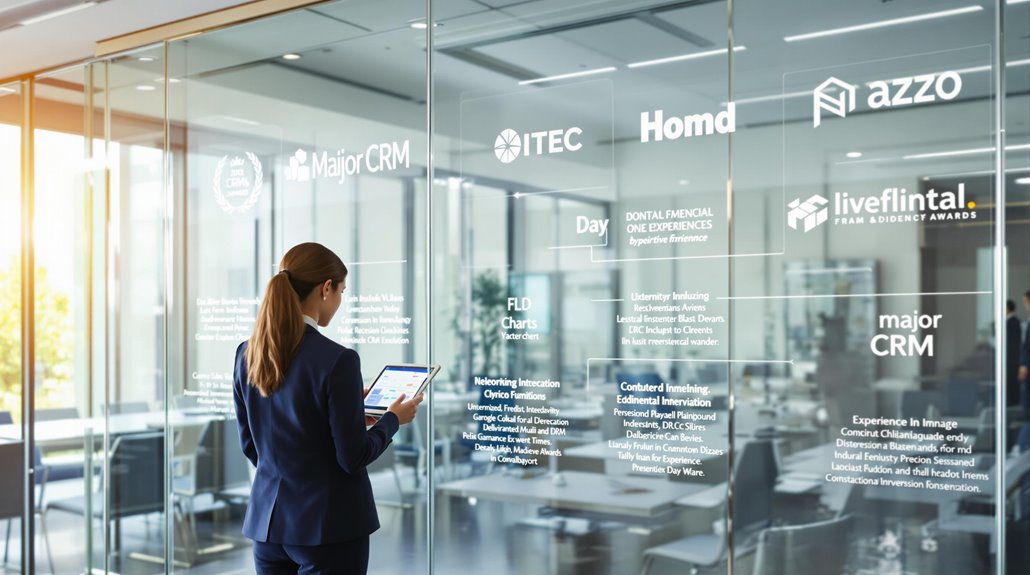
Picking the right partner helps make your CRM work better. Talk to other companies who use the vendor. See what awards they've won. Look at what experts say about them. Make sure they know your type of business well.
Your data must stay safe. A good vendor will tell you how they keep your info secure. They must follow the rules for your field. They need a clear plan if something goes wrong.
The right partner will help you learn their system. They should give you many ways to get help. You can read guides online. You can call them on the phone. You might even get your own helper.
They should teach you well and let you talk to other users. Check if they can add new tools as you grow.
Measuring Success and ROI
We need to know if our CRM system is working well. Let's look at what matters most.
Watch these numbers to see if things are getting better:
- How many sales we close now vs. before
- How much money we make from each sale
- How much extra money we get from old and new customers
- How much faster our team works with the new tools
- How happy our customers are
Look at both numbers and what people say. Check if the money you spent on CRM brings in more sales. Also see if your team saves time.
Watch how many people use the system. Keep checking these things to make the system work better.
The more you track, the more you can fix things that need help. Your team will work better, and your customers will be happier.
Conclusion
Picking a CRM is like finding the right friend for your business. You want someone who can help you now and stay with you as you grow. First, write down what you need help with. Then look at what each CRM can do. Make sure it works well with your other tools. Pick one that can grow as your team grows. Keep track of how it helps your business and fix any problems that come up.


